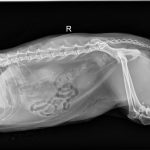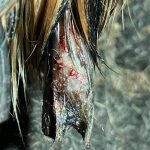Hello,
I am sorry to hear about your dilemma. You are not alone. I know that a lot of people are in the same position that you are.
I am not sure how vetmed got to this place. I am not sure why so few veterinarians are willing to go and look for a polyp that if it continues to grow will kill, by suffocation, its host.
The idea that every single one of these cats needs a CT is incorrect. What every single one of these cats is is to breathe. Some of these cats will have polyps in places that we may not be able to get our hands on,, these cases may need a special scope to access. For this reason the price of care may increase.,, but for all of the cats I have seen I think I have given them a second chance at breathing, and a second chance at life.
Call every vet in your area. Try every single veterinary practice that is single doctor (therefore privately owned) and every practice that has some old guy (or girl) working there. I promise that every veterinarian over 50 knows how to, and already has experience with this. They can help.
If you cannot find anyone please come find me.
I will do my best to help.
Dr Magnifico










Hello,
It sounds like you have done a pretty thorough work up. The places I think that you should look into are;
Repeat the blood work. It sounds like hyperthyroidism. I always check a free T4 on top of the thyroid T4. I also check a urine. If you haven’t sent a fecal to the lab too.
After that the ultrasound and X-rays are where I look.
You are still at the place where the diagnosis is eluding you. That’s where you need to focus.
PS. Just for the record I don’t love starting pred until you have a diagnosis. It can obscure your diagnostics.
Good luck. I hope this helps.